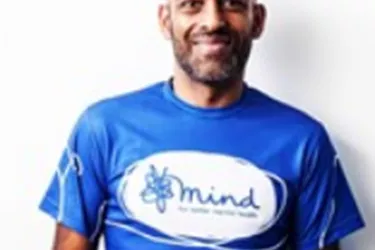Living with Bipolar Disorder during Lockdown
Becky, from Cardiff, blogs about how she is managing her bipolar disorder during lockdown.
Ever since I was diagnosed six years ago, not a day has gone by where I haven’t thought about my bipolar disorder. It is so intrinsically woven into my daily routine that it’s impossible not to think about. I wake up, take my meds and pause to evaluate how I think I’m feeling. Every evening, before I go to bed, I take my meds and note down in my journal where I think I am on my mood scale.
Throughout the day I question my reactions; am I hypomanic or have I had too much caffeine? Am I tired or are my emotions draining away because I’m getting depressed again? At this point, I’m pretty used to it and thanks to therapy it doesn’t bother me too much anymore. In fact, in a lot of ways being so in tune with my brain is very useful; I can often spot a mood shift pretty early on which can help me try to prevent it spiralling out of control.
Lockdown has completely thrown me off.
It’s a very strange and unusual time for everyone, whether you struggle with your mental health or you don’t. Due to lack of contact with the outside world, I’m spending a lot of time stuck in my head and that’s not always a good place for me to be, especially when my usual distractions, such as meeting up with friends, have been taken away from me.
With a mental illness like bipolar it can be easy to spend your life fearing the next mood shift. There’s a lot of unknowns and, as someone who likes to be in control, that can generate a lot of anxiety. Like I said, therapy can be really useful for this but there’s also an element of just accepting it (easier said than done, I know). Life is full of unknowns and this is just another to add to the mix.
I have a tendency to overthink and end up convincing myself that my mood is shifting when, in realty, I’m perfectly fine.
During this time, I’ve been finding grounding techniques are really helpful.
Grounding techniques help control symptoms by turning attention away from thoughts, memories, or worries, and refocusing on the present moment. At first, I wasn’t into it; I’m not a person who finds deep breathing and meditation particularly easy or useful. However, I have learned that there are so many other kinds of techniques and I’ve managed to find some that work for me. A huge one has been doing single-player card games like solitaire and spider on my computer. It sounds lame, I know, but it’s been a genuinely helpful tool to distract me from my anxiety.
I haven’t been taking advantage of the daily exercise as much as I should have, but I find putting in some headphones, listening to music and going for a walk (or a run if that’s more your style) is a fantastic way of getting out of my head for a while.
I’m taking advantage of this time to learn more about myself and my mental health, but I’m also learning that it’s okay to take a break sometimes and if there are days where I feel like doing nothing other than watching a film and cuddling my cat, that’s totally valid. I don’t always have to be active; taking time out to relax and have a breather is essential for me.
Balance is an important part of looking after yourself, I hope you remember that too.
Becky currently lives in Cardiff. She enjoys binge-watching Buffy the Vampire Slayer and reading copious amounts of books.


Information and support
When you’re living with a mental health problem, or supporting someone who is, having access to the right information - about a condition, treatment options, or practical issues - is vital. Visit our information pages to find out more.
Share your story with others
Blogs and stories can show that people with mental health problems are cared about, understood and listened to. We can use it to challenge the status quo and change attitudes.

















